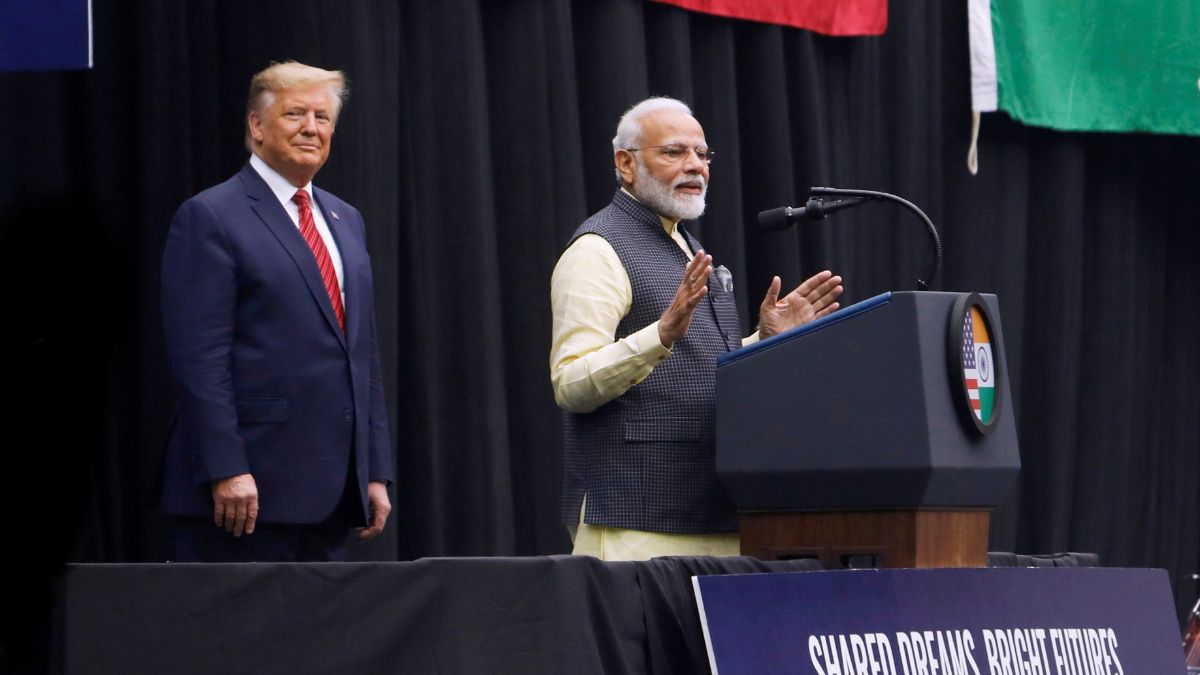The recent decision by US President Donald Trump to impose additional tariffs on India, citing the purchase of Russian oil, has sparked debate about the motivations behind this move.
Michael Kugelman, a prominent South Asia analyst and Director of the South Asia Institute at the Wilson Center in Washington DC, argues that the tariffs are less about economic strategy and more about personal resentment. In an interview with news agency ANI, Kugelman described the situation as the “worst crisis” in US-India relations in the past two decades, suggesting that Trump’s actions stem from taking India’s independent stance as a personal slight.
Kugelman pointed out a perceived double standard in Trump’s approach, particularly when compared to his treatment of China.
When asked why Trump was targeting India but not China, Kugelman explained: “…China has not stood out there and refused to let President Trump take credit for his role in the ceasefire. China has not had its leader have a long conversation with Trump on the phone and essentially dictate to him what’s right and what’s wrong. These are things that happened with India. So, I think that’s why perhaps President Trump would reserve some of his greatest ire on the trade and tariff front for India and for the Indian government. Indeed, it’s a double standard. It’s hypocritical, whatever you want to say…”
#WATCH | Washington DC | On being asked about why President Trump is not punishing China, but targeting India (for Russian imports), Director of the South Asia Institute at the Wilson Center, Michael Kugelman says, "...China has not stood out there and refused to let President… pic.twitter.com/OkDwhu7S7t
— ANI (@ANI) August 6, 2025
The analyst was referring to India’s firm rejection of Trump’s claims that he played a pivotal role in brokering a ceasefire between India and Pakistan following Operation Sindoor. Trump has repeatedly attributed the halt in hostilities to trade incentives offered by the US, a narrative that India has consistently debunked.
Indian Foreign Minister S. Jaishankar has previously dismissed any suggestion of external mediation, but it was Prime Minister Narendra Modi’s statement in Parliament that drove the point home.
“We had said from day one that our action was non-escalatory. No leader in the world asked us to stop Operation Sindoor,” Modi declared from the Parliament, directly challenging Trump’s version of events.
However, Kugelman’s analysis has drawn criticism from some quarters in India. Former Foreign Secretary Kanwal Sibal questioned why Modi has refrained from directly confronting Trump’s misleading claims.
In a post on X, Sibal expressed frustration: “Why play the charade of giving false credit for a ceasefire based on trade threats and one announced over the head of India’s leader, creating thereby impression India was pressured to agree? Trump can keep assailing India as a tariff king, threaten tariffs, talk of his interest in mediating the Kashmir issue but Modi dare not tell him what’s right and what’s wrong? India has sovereign interests which it has to defend.”
Sibal also highlighted what he sees as Trump’s inconsistent approach toward China. He noted, “Chinese spokespersons day in and day out speak disparagingly of the US, talk down at it, express defiance. Yet, Trump is delaying imposing tariffs on China.”


)

)
)
)
)
)
)
)
)



